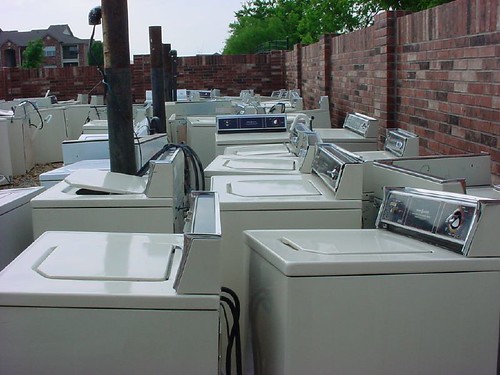Do you leave the house with the dishwasher running? Have you ever stepped outside to do some gardening while your clothes were in the wash? Most of us don't think about home appliance safety on a daily basis, but you might change your tune once you really think about how often your home appliances are running.
According to MSNBC, 1.6 million Maytag refrigerators have been recalled by the manufacturer for electrical problems. The Maytag recall follows "41 reports of refrigerator relay ignition", sixteen of which have resulted in various degrees of property damage.
Refrigerators are not the only home appliances that can malfunction and cause serious damage and injury. The Maytag refrigerator recall simply reminds homeowners about home appliance safety and encourages consumers to think about the types of products they use in their homes.
Unfortunately, however, refrigerators must run constantly in order to be effective, unlike washing machines and coffee pots and dishwashers that can be monitored while in use. After all, you have to leave your home sometime, so what does good home appliance safety entail?
Cleaning & Maintenance
Regardless of how long you have owned your appliances, regular cleaning and maintenance is essential. Home appliance safety requires that you follow a rigorous maintenance schedule even if there are no visible problems. Furnaces, for example, should be cleaned and checked for problems each fall before the cold weather sets in.
Many home appliances offer suggested maintenance schedules if you bother to read the owner's manual. Make a habit of scanning the literature for home appliance safety tips each time you buy a new product. That way, you're always on top of things.
Changing Components
Home appliance safety also requires that you change the necessary components on a regular basis, even if you don't use the product often. Filters, batteries, lint traps and other temporary components can cause serious damage when worn.
Of course, this won't solve all problems, as the electrical issues involved in the Maytag recall were not attributed to temporary components. However, this can save lives and extend the lifespan of your home appliances.
Reasons for Disconnection
When practicing home appliance safety, it is a good idea to watch for signs that the product should be disconnected. For example, with the Maytag recall, the refrigerator should have been disconnected immediately upon notice of smoke or sparks.
This also includes leaks, strange noises and odd smells you notice in home appliances. After you've disconnected the appliance, you can have the equipment serviced to see if a serious problem is present.
Unsafe Products
Most home appliances can only be used in specific situations. For example, you should never operate a microwave with a metal dish or dry a piece of clothing stained with flammable fluid. Similarly, space heaters should not be placed next to rugs or curtains that could easily catch fire, or burn green wood in a fireplace.
Get in the habit of knowing home appliance safety for every piece of equipment in your home, and don't hesitate to call the manufacturer if you have any questions. And if you have purchased a refrigerator included in the Maytag recall, make sure it is promptly disconnected and returned to the store.
Sources:
MSNBC, Maytag recalling 1.6 million refrigerators
appliance repair
appliance repair
appliance repair
appliance repair
appliance repair
appliance repair
appliance repair
appliance repair
appliance repair
appliance repair
appliance repair
appliance repair
appliance repair
appliance repair
appliance repair
appliance repair
appliance repair
appliance repair
appliance repair
appliance repair
appliance repair
appliance repair
appliance repair
appliance repair
appliance repair
appliance repair
appliance repair
appliance repair
appliance repair
appliance repair
appliance repair
appliance repair
appliance repair
appliance repair
appliance repair
appliance repair
appliance repair
appliance repair
appliance repair

